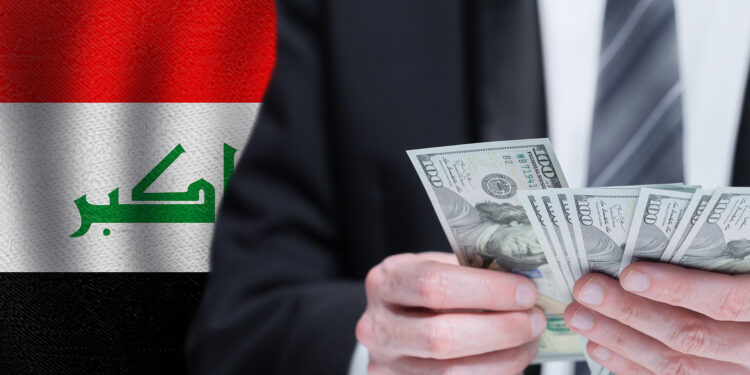Baghdad- The Iraqi economy faces major challenges as a result of its close connection to the US dollar. Fluctuations in the exchange rate and the control of the Federal Reserve (the US central bank) over the financial system directly affect the economic stability in Iraq.
This impact was directly reflected on the life of the Iraqi citizen in terms of the rise in prices of goods and services, the erosion of the value of wages, and the decline in purchasing power.
Thorny file
The head of the National Center for Monitoring and Evaluation in Iraq, Muhammad al-Baghdadi, confirmed that the dollar issue is considered one of the thorny and complex files in the Iraqi economy, noting that this file is linked to two main axes, namely the US Federal Bank’s control over dollar transactions, and supply and demand.
Al-Baghdadi said – in an exclusive interview with Al Jazeera Net – “The Iraqi economy depends entirely on the issue of the dollar and its exchange rate, indicating that the American currency is supplied to Iraq through the sale of oil, but, unfortunately, this money is in accounts subject to the control of the American government.”
He added that Iraq is facing great difficulties in controlling the issue of the dollar, and said: “Iraq is a consuming country, and during the process of selling the dollar to exchange houses and banks, large quantities of it are withdrawn and sold in the form of external transfers to finance Iraqi imports.”
He continued that the issue of the US Federal Reserve’s control over these financial transactions places great restrictions on Iraq in these operations, pointing out that the exchange rate depends entirely on the amount of supply and demand.
Although about 3 years have passed since the start of the operation of an electronic platform to monitor the movement of the dollar, the exchange rates of the dinar against the US currency are still witnessing a large discrepancy between the official price announced by the Central Bank of 1,320 Iraqi dinars per dollar, and the black market price, or what is known as the parallel price, which ranges Between 1490 and 1510 Iraqi dinars for every dollar.
Neighboring countries
Al-Baghdadi stressed that the central government is trying to control the flow of capital from Iraq to neighboring countries to finance imports, but it is very difficult due to the smuggling of quantities of cash.
For his part, economic expert Kazem Jaber confirmed that the sharp fluctuations in the dollar exchange rate in Iraq are not limited to neighboring countries, but rather extend to the effects of the international financial system, especially the SWIFT system (for money transfers) and the monetary policies of the US Federal Reserve Bank.
Jaber pointed out – during his talk to Al Jazeera Net – that this system imposes strict restrictions on the movement of money towards countries, making them vulnerable to external influences.
On the fourth of last September, the Central Bank of Iraq announced the end of the electronic platform for external transfers, early next year.
In its first phase, the platform’s work is based on reorganizing financial transfers in a way that ensures proactive oversight over them instead of subsequent oversight through the Federal Reserve’s audit of daily transfers.
BRICS bloc
Jaber believed that the Iraqi government’s attempts to control the exchange rate face major challenges due to the heavy reliance on the SWIFT system, noting that Iraq is striving to achieve greater financial independence from the current global financial system by seeking to join the BRICS economic bloc, which aims to build a financial system. An alternative based on a basket of currencies, which reduces the dominance of the dollar and gives member states wider options in international financial transactions.
He stressed that resorting to the parallel market may be inevitable to meet the needs of the private sector under these circumstances.



